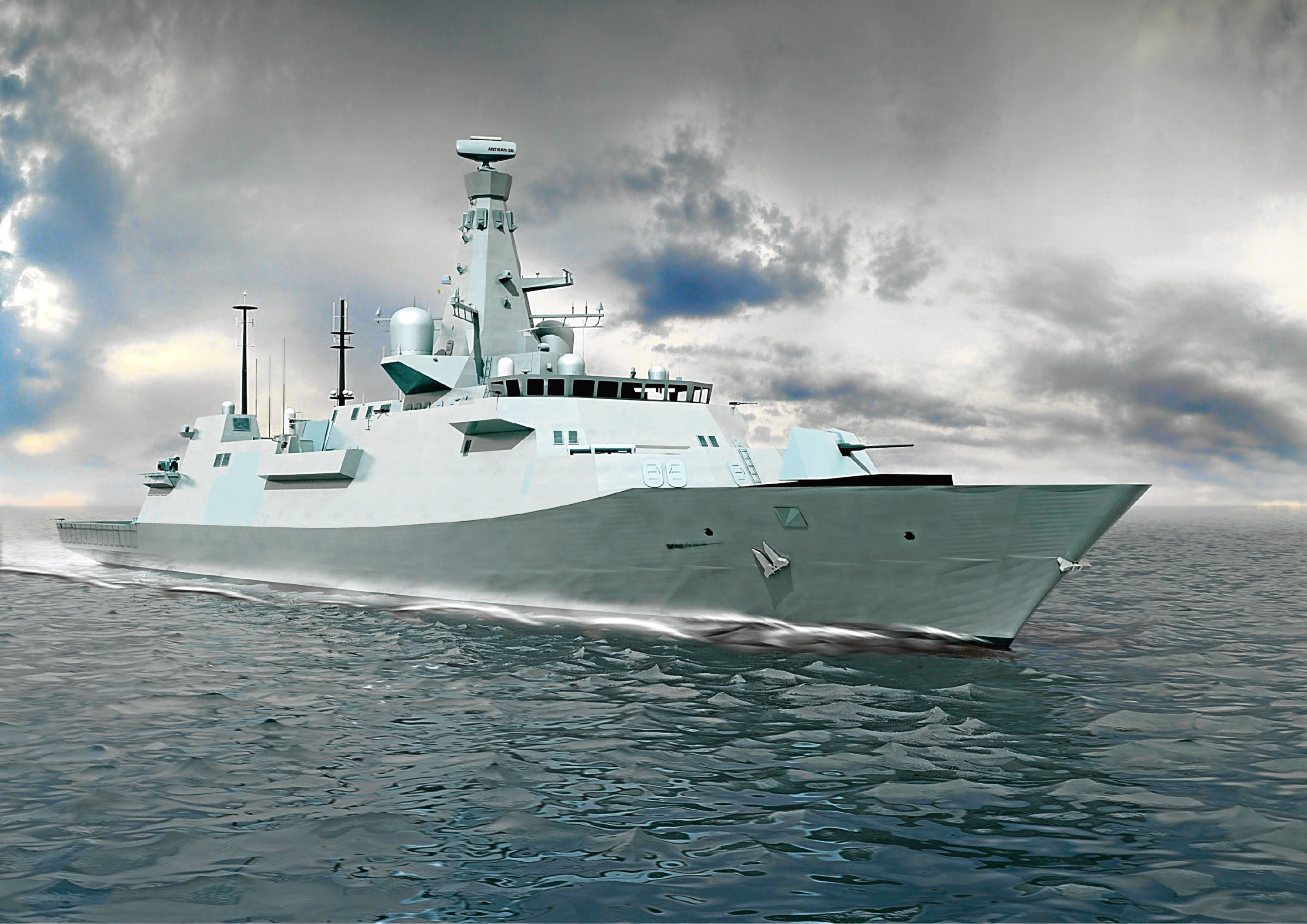
A £3.7 billion contract has been signed to build the first three ships in a new fleet of Navy frigates.
Work on the Type 26 global combat ships will start at BAE Systems’ yards on the River Clyde in Glasgow this month, securing 1700 jobs in Scotland.
A total of eight ships are to be built in the fleet – down from the original plan to build 13 – with the contract for the second batch of five ships to be negotiated in the early 2020s.
One union chief last night suggested the staggered nature of the contract could be partly accounted for by concern over the possibility of a second independence referendum.
But defence sources insisted it just makes commercial sense to do it this way as you can cut costs as a result of lessons learned in the first batch.
The ships will specialise in anti-submarine warfare and work closely with the Navy’s Trident nuclear deterrent and the new aircraft carriers, the first of which – HMS Queen Elizabeth – launched from Rosyth, Fife, last week for sea trials.
Defence Secretary Sir Michael Fallon said: “The Type 26 Frigate is a cutting-edge warship, combining the expertise of the British shipbuilding industry with the excellence of the Royal Navy. We will cut steel on the first ship later this month – a hugely significant milestone that delivers on our commitment to maintain our global naval power.
“Backed by a rising defence budget and a £178 billion equipment plan, the Type 26 programme will bring vast economic benefits to Scotland and the wider UK.”
Fears over the future of the Glasgow yards were raised last year when the Type 26 work was delayed but Sir Michael later visited the site to commit to the programme. The fleet will eventually replace the current Type 23 frigates and each ship will carry a crew of 118.
Gary Cook, GMB organiser and chairman of Confederation of Shipbuilding and Engineering Unions Scotland, said: “I am not surprised by this. I think the structure of the deal just reflects the political reality.
“With a second independence referendum still a possibility, I am quite sure the UK Government wants to be in a position where if independence was to happen then it would not be locked into a long deal on building these complex warships in what would be a foreign country.
“The other point is that doing it this ways spreads the costs out.
“These ships just have to happen in terms of what the modern Royal Navy needs, everyone is agreed on that, so there is absolutely no question over that”.
Ian Waddell, national officer with trade union Unite, said: “We welcome the long awaited news that the Type 26 programme has been given the go-ahead. These first three ships will secure thousands of highly skilled jobs on the Clyde and across the UK supply chain.”
Douglas Chapman MP, the SNP’s defence procurement spokesman, said: “This is a very long-awaited and long-promised contract and it is welcome news for the skilled workforces at Scotstoun and Govan and others in the supply chain.”

Enjoy the convenience of having The Sunday Post delivered as a digital ePaper straight to your smartphone, tablet or computer.
Subscribe for only £5.49 a month and enjoy all the benefits of the printed paper as a digital replica.
Subscribe